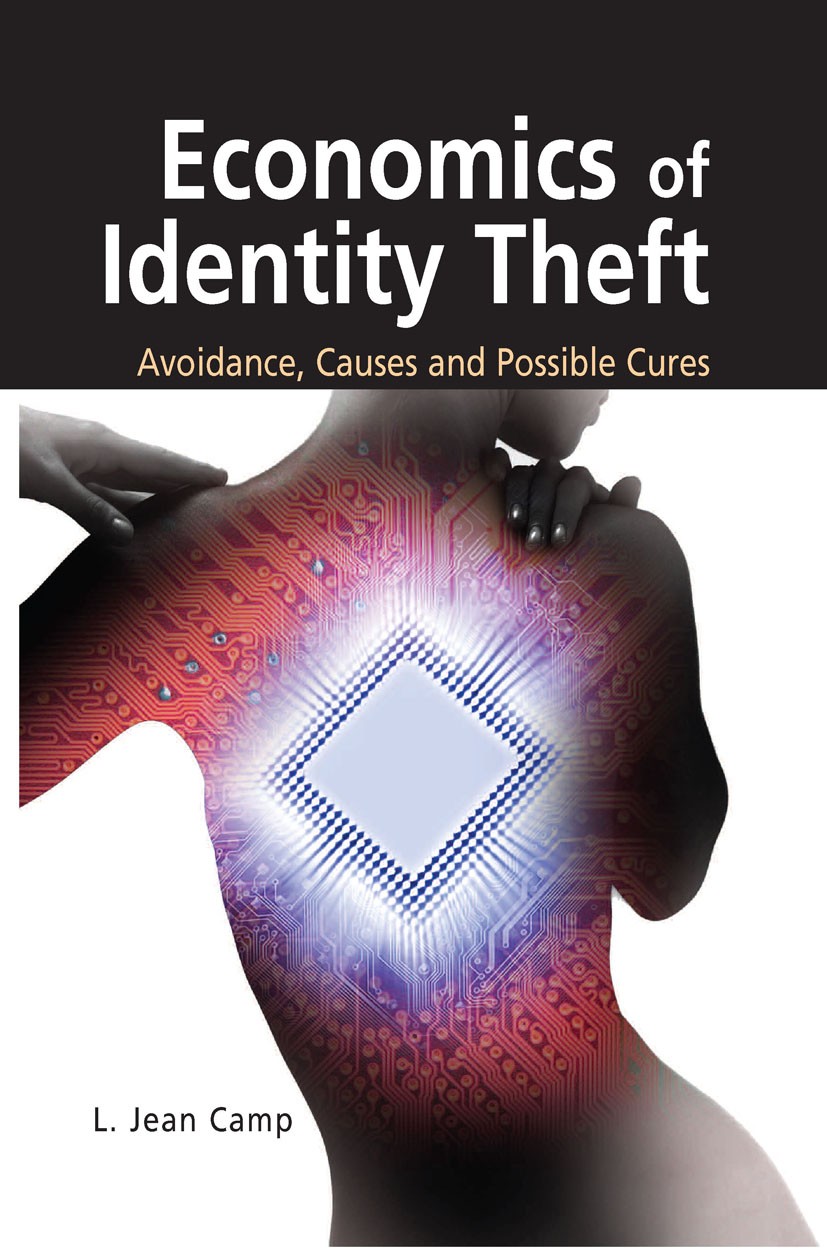| 书目名称 | Economics of Identity Theft | | 副标题 | Avoidance, Causes an | | 编辑 | L. Jean Camp | | 视频video | http://file.papertrans.cn/303/302002/302002.mp4 | | 概述 | While a plethora of books on identity theft exists, this book combines both technical and economic, presented from the perspective of the identified individual.Includes the method "Identity Papers" – | | 图书封面 |  | | 描述 | Anyone who has ever bought a car, rented an apartment, had a job or conversation that they would rather not see in their employee review may find this book of interest. There is a collision occurring in identity management. Identity technologies are problematic, and many see light at the end of the identity theft tunnel. Yet the innovation is driven by individual tendencies to seek convenience and business imperatives to minimize risk with maximized profit. The light is an oncoming identity train wreck of maximum individual exposure, social risk and minimal privacy. The primary debate over identity technologies is happening on the issue of centralization. RealID is effectively a centralized standard with a slightly distributed back-end (e.g., fifty servers). RealID is a national ID card. Many mechanisms for federated identities, such as OpenID or the Liberty Alliance, imagine a network of identifiers shared on an as-needed or ad-hoc process. These systems accept the limits of human information processing, and thus use models that work on paper. Using models that work on paper results in systematic risk of identity theft in this information economy. There are alternatives to erosion | | 出版日期 | Book 2007 | | 关键词 | Camp; Economics; Good name; Identity; Information; Signatur; communication; cryptology; data encryption; data | | 版次 | 1 | | doi | https://doi.org/10.1007/978-0-387-68614-1 | | isbn_softcover | 978-1-4419-4182-4 | | isbn_ebook | 978-0-387-68614-1 | | copyright | Springer-Verlag US 2007 |
The information of publication is updating

|
|
 |Archiver|手机版|小黑屋|
派博传思国际
( 京公网安备110108008328)
GMT+8, 2026-2-8 10:14
|Archiver|手机版|小黑屋|
派博传思国际
( 京公网安备110108008328)
GMT+8, 2026-2-8 10:14


